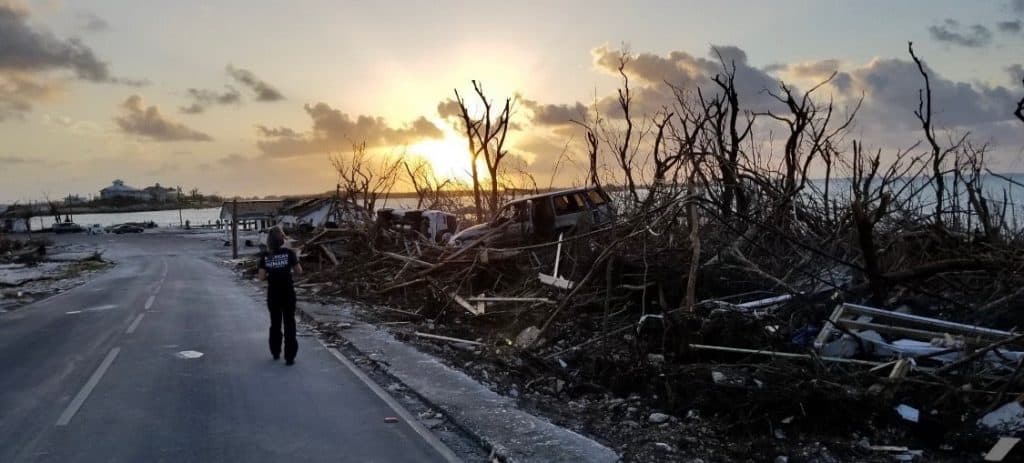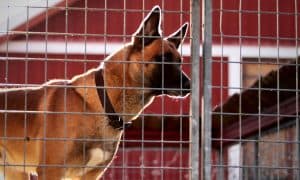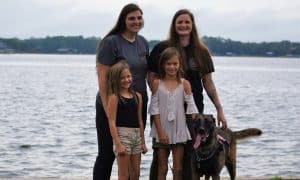“This post contains affiliate links, and I will be compensated if you make a purchase after clicking on my links.”
Surrounded by the shattered remains of her home, an elderly dog lay barely moving on an old mattress in front of where her home used to stand. After being rushed to a shelter where she received lifesaving nourishment, fluids, and tender loving care, the starving, frightened and dehydrated pet rescuers named “Hope” slowly rose and took her first steps toward Amber, a veterinary technician with the American Humane Rescue team. Laying her head in Amber’s hands, she looked up and, in the rescue responder’s words, “for the first time knew that she was safe.”

In September, the most powerful tropical cyclone ever to strike the Bahamas, and the worst natural disaster in the country’s history, swept through the island chain with winds of 185 mph, splintering homes, buildings, boat, trees, and lives. On Great Abaco Island, Hurricane Dorian destroyed or swept almost everything in its path out to sea. All told, the storm caused $7 billion in damage and left more than 70,000 people and tens of thousands of animals homeless.
One puppy they discovered was thin, anemic and barely clinging to life when she was rescued and rushed to the MASH unit where she received immediate veterinary care and comfort.
Three puppies who were born during the storm were also rescued. Their mother was very wary at first and would not let our team near her or her babies, but soon realized she could trust her rescuers. All four are now in a foster home.

Another animal victim of the catastrophe, “Chen” (which means “dog” in Creole) was discovered by rescue workers in a remote, decimated village. He had horrific mange, was emaciated and dehydrated, and had deep, open lacerations. Although he was very ill, he had the sweetest, most gentle disposition. The American Humane team carried Chen to safety and rehabilitated him. Every day he gained more strength. He is now in a foster home and is happy and thriving.

The narrative of these stories was repeated again and again. During its multiple deployments to the Bahamas over the past month, American Humane, which has been saving and sheltering animals in disasters for more than a century, found and provided critical aid to hundreds of emaciated, dehydrated, injured, and starving dogs, cats, ducks, chickens, goats, turtles, pigs, and sheep.
In the wake of the disaster, American Humane, the country’s first national humane organization, which has been saving animals in major disasters for more than 100 years, immediately deployed its rescue team with an invitation from IFAW, conducting search-and-rescue operations, setting up, rebuilding and running shelters, transporting tons of emergency food, performing spay-and-neuters, and helping airlift animals to Nassau Island to help reunite pets with their families.

“This is by far one of the most intense and traumatic disasters we have ever been involved with,” said American Humane President and CEO Robin Ganzert, PhD. “With increasingly frequent and increasingly destructive natural disasters, so many animals are in crisis. We are grateful to all the generous supporters who made it possible for our rescue team to help our best friends in their worst times.”
About American Humane and the American Humane Rescue program
American Humane is the country’s first national humane organization, founded in 1877. The American Humane Rescue program has been involved in virtually every major relief effort during the past 100 years, starting in World War I when we rescued and cared for 68,000 war horses wounded each month on the battlefields of Europe, the Great Ohio Flood of 1937, Pearl Harbor, the terror attacks on 9/11, the Japanese earthquake, tsunami and nuclear disaster, Hurricanes Andrew, Camille, Katrina, Sandy, Harvey, Maria, Irma, Matthew and Florence, the tornadoes in Joplin and Oklahoma, the Louisiana, West Virginia and Oklahoma floods, and the California wildfires.
To support American Humane’s lifesaving efforts, please visit www.AmericanHumane.org.


















